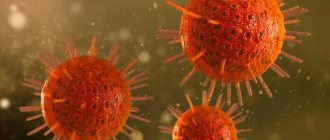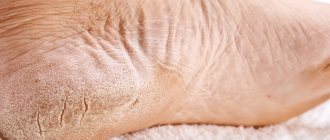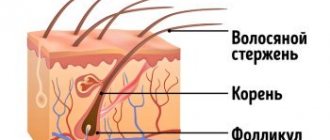Thursday, January 31, 2019
A healthy adult urinates 5-8 times during the day. If the urge to go to the toilet occurs more often, urination, namely the frequency of this process, exceeds the norm; in medicine this phenomenon is called frequent urination.
Frequent urination is usually a sign of some serious medical condition that needs treatment. The doctors of our medical center will help you get rid of this kind of pathology and stop the development of the disease that caused the problem.
Features of pathology in women
Frequent urination in women in some cases does not have a pathological nature. It can be caused by drinking too much or taking diuretic medications. A number of drinks loved by the fair sex have a diuretic effect. These include traditional coffee and tea, as well as herbal teas that help reduce weight.
In such situations, frequent urination occurs without pain, and it does not pose a threat to health.
Women going to the toilet at short intervals can be caused by emotional experiences, hypothermia of the legs, as well as a number of processes in the body (menstruation, menopause).
If the corresponding phenomenon is one-time in nature and is not accompanied by other pathological symptoms (pain, bloody inclusions in urine, burning), do not panic. Otherwise, you need someone who can help you cure frequent urination - a doctor.
To do this, we recommend contacting two specialists in women’s and men’s health – a gynecologist and a urologist.
Features of pathology in men
Most males do not pay attention to increased urination, deliberately ignoring this symptom. The consequences of such carelessness, which men justify by the absence of pain, are violations of personal life, social and everyday discomfort.
In the absence of timely treatment, frequent urination in men can lead to a number of serious diseases, the fight against which will take much more effort, money and time.
Among them is prostate adenoma, which provokes a very strong urge to go to the toilet, with scanty voiding and pain during urination.
If you have an increased urge to urinate, it is important not to put off resolving the issue, but to find out as early as possible why this disorder occurred.
To find out how to get rid of frequent urination and return to a comfortable, fulfilling lifestyle, call our clinic and make an appointment with a urologist.
Diagnosis of frequent urination
In order to understand how to treat frequent urination, tests are taken from men and women.
The main thing is a urine test, which allows you to examine the composition of urine and identify deviations from the norm. At the initial appointment, the doctor collects anamnesis, including asking the patient about his condition. The doctor may be interested in how frequent urination manifests itself, at what time it begins and intensifies, and what is accompanied by it. It’s not enough to say that I urinate often. Be prepared to report on the amount of fluid you drink, medications you take, and lifestyle. If there are suspicious changes in the color, consistency, or smell of urine, you should also tell your doctor about this.
During the examination, the doctor also performs a physical examination. Based on the information received, the specialist decides on the need to use certain types of in-depth diagnostics.
Frequent urination in children
Very frequent urination in childhood is called pollakiuria.
To understand whether such a disorder occurs in your child, you should know the norms: how many times a day healthy children should urinate.
The physiological norms of the corresponding indicator depend on the age of the child.
It is believed that in the first half of life a baby urinates up to 25 times a day, at the age of 6 months to a year - up to 17 times, in preschool age - up to 9 times, and in a child over 7 years old, the frequency of urination acts is identical to that of adults.
Pollakiuria of the physiological type is a phenomenon that does not have a pathological nature. It can be caused by drinking too much, taking certain pharmaceuticals and foods with a diuretic effect.
Hypothermia leads to accelerated filtration of urinary fluid due to spasm of the renal vessels. If the child is warmed up, the frequency of urinary acts is normalized.
Stressful conditions and overexcitement of the child can lead to pollakiuria - frequent urge to urinate in this case causes increased production of adrenaline, leading to increased urine production.
Manifestations of physiological pollakiuria do not require treatment. To improve the frequency of urination, it is enough to eliminate the factor that provoked the development of the disorder.
In cases where frequent urination is pathological, it is a sign of disease. Don’t let your child get sick - contact us, such a disorder can be successfully treated in our center.
Consequences and complications
The safest consequence for a person suffering from frequent urination at night is lack of sleep and decreased concentration at work due to fatigue. In most cases, it is not possible to fall asleep quickly after going to the restroom, so a person is “robbed” of at least an hour in total from his total sleep time.
Due to urinary disorders, patients experience swelling of the face and limbs. In addition to an aesthetic defect, this brings problems with metabolic processes in the skin.
At night, it is difficult to fully maintain intimate hygiene, especially if the urge to urinate is frequent. Therefore, nocturia sometimes causes the development of urinary tract infections.
Due to problems in the body, the psyche suffers first of all: a person understands that a problem has arisen, but out of delicacy refuses to go to the doctor. For this reason, he becomes nervous, sometimes even aggressive, and depression develops. Insomnia often occurs against the background of nocturia, which further aggravates the problem. The sick person develops chronic fatigue and decreased immunity. There is a risk of developing endocrine disorders and cardiovascular problems.
Frequent urination in pregnant women
During gestation, amniotic fluid is constantly renewed, and this is reflected in a woman’s urination.
Pregnancy causes the uterus to grow. Increasing in size, this organ puts pressure on the bladder, stimulating urination. Therefore, pregnant women most often feel the desire to urinate in the last stages, when the fetus, and with it the uterus, has reached its largest size.
If frequent urination during pregnancy is accompanied by pain or discharge with blood and pus, this is an alarming signal that requires urgent attention to a specialist.
Endocrine
Frequent urination of an endocrine nature is a concomitant sign of diseases such as diabetes mellitus or diabetes insipidus.
In the case of diabetes mellitus, a lack of insulin causes an increase in sugar levels in the blood and urine. Glucose has the property of transporting water molecules. When released, glucose dehydrates the body, leading to frequent, excessive urination.
Failure of the hypothalamus and pituitary gland, as one of the manifestations of diabetes insipidus, causes a feeling of intense thirst, so urination becomes more frequent.
Types of nocturia
Nocturia can be permanent (it is observed in pathologies of internal organs and endocrine glands) and temporary - it occurs in various types of general diseases.
Doctors also identify intermittent nocturia, in which daily diuresis does not decrease. Its appearance is associated with diseases such as pernicious anemia, liver cirrhosis, thyroid pathologies, prostate adenoma, and diabetes insipidus. True nocturia, accompanied by cessation of physiological urination during the day, deserves special attention.
Problems with the urinary system
Among the problems that result in frequent urge to go to the toilet are several groups of diseases:
- the presence of inflammatory processes - cystitis (characterized by frequent urination with pain in the lower abdomen, the patient feels a cutting pain, a burning sensation), urethritis (accompanied by itching, pain and burning in the urethra);
- kidney pathologies in the form of urolithiasis (with painful frequent urination with blood), pyelonephritis (with lower back pain and urine containing bloody-purulent inclusions);
- urethral stricture;
- bladder disorders in the form of atony (decreased tone, frequent urge and small movements), hyperactivity (increased activity of nerve endings in the walls of the organ) or cystocele (prolapse);
- cancerous tumors in the pelvic organs;
- infectious processes of the urinary ducts - they can arise due to non-compliance with the rules of personal and intimate hygiene.
Symptoms of male cystitis
The most common symptoms of cystitis in men are:
- Frequent (often with difficulty and pain) urination.
- Change in urine odor.
- Presence of pus and bloody discharge in the urine.
- Burning and itching when urinating.
Specific symptoms may be accompanied by general negative signs: weakness, decreased ability to perform usual work, painful manifestations in the groin, scrotum, bladder, increased body temperature. A man with cystitis becomes nervous, irritable, vulnerable to other diseases - the presence of these symptoms varies from person to person. The intensity of the signs of the disease increases along with the neglect and progression of cystitis.
Gynecological diseases
Gynecological disorders also cause increased urge. Among them are uterine
fibroids in an advanced stage. Tumor uterine formations, having reached significant parameters, compress the bladder, which causes an increased urge to urinate.
Pollakiuria may appear as a result of uterine prolapse, leading to displacement of a number of organs in the pelvic region, in particular the urinary ones. Symptoms of this pathology are heavy menstrual bleeding, pain in the lower abdomen, and constant frequent urination.
A number of sexually transmitted infectious diseases can also lead to disruption.
Non-pathological disorders
An increase in the frequency of urine excretion may also have a non-pathological nature.
The most common non-pathological causes of frequent trips to the toilet:
- excessive fluid intake, in particular drinks with a high caffeine content, leading to bladder irritation (coffee, tea);
- overweight (obesity) – extra pounds put additional pressure on the bladder, causing a problem;
- weak muscular corset of the pelvic floor - in the presence of weakened muscles, the need for emptying occurs more often;
- pregnancy – the fetus, as it grows, puts pressure on the bladder;
- psychological stress, emotional experiences, feelings of anxiety, fear;
- the use of diuretic therapy - medications lead to an increase in the frequency of urination and an increase in the single volume of urine.
It is important to promptly determine why frequent urination occurs and what disease it is a symptom of. To do this, you must undergo the necessary diagnostics.
Diagnosis and treatment of dysuria at the Yauza Clinical Hospital
To find out the true cause of urinary disorders, the urology department of the Yauza Clinical Hospital conducts a full range of laboratory and instrumental studies. This may include bacteriological examination of urine and genital discharge, cystoscopy, survey and excretory urography, retrograde urethrography. An ultrasound of the genitourinary system is mandatory.
Therapy for urinary disorders involves an integrated approach and is aimed at treating the underlying disease. The urologist will prescribe medications that can normalize the act of urination and recommend physical therapy methods. All of the above violations require an emergency visit to a urologist. In many cases, surgical treatment is indicated.
For an accurate diagnosis, it is necessary to undergo an examination. The modern equipment that the clinic is equipped with will allow this to be done quickly and efficiently. An accurate diagnosis is the key to success in treatment. Sign up for a clinic at a time convenient for you and stay healthy.
You can see prices for services
Diagnostics: what tests need to be done?
If you have a problem with frequent urination, tests and other types of examination should be performed in combination.
Diagnosis of the disorder may include the following procedures:
- conducting a clinical blood test (for the presence of inflammation in organs and systems);
- blood biochemistry (information about the amount of uric acid and kidney condition);
- clinical analysis of urine (detection of salts, protein, foreign bloody and mucous formations and other anomalies);
- Ultrasound of the genitourinary organs (kidneys, bladder);
- smear from the urethra (bacterial culture);
- X-ray diagnostics (thanks to computed tomography, the parameters of kidney stones are clarified);
- neurological and urodynamic testing.
| Code | Name | Price |
| 03.00 | Initial appointment with a urologist (candidate of medical sciences) | 2,000 rub. |
| 03.04 | Repeated appointment with a urologist (candidate of medical sciences) | 1,200 rub. |
| 03.60 | Initial appointment with a urologist (MD) | 5,000 rub. |
| 03.61 | Repeated appointment with a urologist (MD) | 3,000 rub. |
| All prices of the men's and women's health clinic | ||
When referring for diagnostics, a specialist doctor takes into account the data from the initial physical examination of the patient and individual signs of frequent urination.
Enlarged prostate gland - benign prostatic hyperplasia
Benign prostatic hyperplasia is often not a cause for concern, since the prostate gland grows with age in every man. Therefore, in most cases, when the symptoms are not too severe, treatment for an enlarged prostate only involves an annual examination by a urologist and careful monitoring of the patient.
But prostate enlargement can be associated not only with age-related hyperplastic processes. For example, the organ enlarges with prostatitis and prostate cancer. Therefore, every man over 40 years of age should undergo a prostate examination, including:
- Laboratory tests for gland function - assessing the level of PSA in the blood. PSA, a protein substance produced by the prostate, is a marker of hyperplasia and cancer.
- Ultrasound of the prostate. Gives accurate characteristics of the size of the prostate gland.
- Rectal examination. Examination of the prostate through the rectum. Wearing gloves and applying the gel to the finger, the doctor inserts it into the patient’s rectum, examining the area to which part of the gland is adjacent. The purpose of the examination is to assess the size of the prostate gland, its consistency, shape, presence of nodules, etc.
Assessing PSA levels in the blood
Regular examinations performed by a urologist allow the doctor to systematically assess the condition of the prostate gland and changes occurring in the gland. This makes it easier for your doctor to spot warning signs that may indicate prostate cancer.
In its early stages, prostate cancer produces symptoms very similar to those found in benign prostatic hyperplasia. These include organ enlargement, difficulty urinating, frequent urination, and urinating in small amounts at night. The growing tumor can eventually lead to complete closure of the urethra and urinary retention.
Nature of treatment
How to overcome this disease is decided by the doctor in accordance with the examination results.
The nature of the treatment of the pathology is determined by its main cause. For a disease such as diabetes, the goal of treatment will be to control the acceptable level of blood sugar. Antibacterial therapy is used to treat inflammation of the urinary organs.
Bladder disorders are treated with special physiotherapeutic procedures (therapeutic gymnastics).
Cystitis and urethritis are treated on an outpatient basis - the patient undergoes rehabilitation at home, under the supervision of a specialist.
Pathologies in the form of acute pyelonephritis or newly diagnosed diabetes mellitus often require hospital treatment.
Frequent urination is successfully treated in the women's and men's health clinic. Our doctors have earned the trust of patients and gained experience in solving this problem.
What Causes an Overactive Bladder?
Overactive bladder is more common in women than in men – 60% versus 40%. The main cause is disturbances in the functioning of the nervous system caused by:
- spinal cord injury;
- multiple sclerosis;
- traumatic brain injuries;
- intervertebral hernias;
- strokes.
OAB also develops against the background of diabetes mellitus, poisoning of the body with alcohol or chemicals. The disorder can also be congenital due to abnormalities in the structure of the urinary canal.
In men, OAB can be caused by prostate adenoma, which narrows the urethra. In women, overactive bladder syndrome has risk factors that increase the likelihood of experiencing such diseases. The list of such factors includes:
- childbirth with complications (ruptures, forceps);
- surgeries for urological or gynecological indications;
- alcohol or caffeine abuse;
- age over 75 years;
- obesity;
- depression.
You can also encounter OAB during menopause, when the body lacks estrogen hormones. Detrusor sensitivity (its contraction leads to urination) may increase with hormone replacement therapy for breast cancer. Stressful situations and harmful working conditions are no less important in the development of OAB.
Medicines
Drug treatment involves a wide range of medications, and its specificity is determined by the type of disease that caused pollakiuria:
- uroantiseptics and antibacterial agents (prescribed for inflammatory processes of the urinary organs);
- insulin (for the treatment of diabetes);
- antispasmodics (relieve pain);
- probiotics (help maintain normal microflora of the body);
- nootropic drugs (prescribed for bladder disorders);
- sedatives (indicated for mental and neurological disorders).
Self-medication is unacceptable - a doctor should prescribe medications and monitor the progress of recovery!
Treatment
Conservative therapy
Therapeutic tactics are determined by the cause of the development of pollakiuria:
- Cystitis.
They carry out antibiotic therapy, use uroseptics, NSAIDs, intravesical instillations, and physiotherapy. Patients with interstitial cystitis are prescribed antihistamines, synthetic mucopolysaccharides, and tricyclic antidepressants. - Urethritis.
For nonspecific urethritis, antibiotics are used. For specific forms, antimicrobial drugs are selected taking into account the sensitivity of the pathogen. Antifungal and antitrichomonas medications may be required, and sometimes a combination of several medications or a combination of antibiotics and hormones is effective. - Kidney diseases.
Antibiotic therapy is supplemented with anti-inflammatory drugs and measures to correct immunity. Eliminate the causes of impaired urine outflow. For glomerulonephritis, symptomatic treatment is carried out aimed at reducing edema and normalizing blood pressure. - Andrological pathologies.
It is possible to use antibacterial agents, analgesics, antispasmodics, NSAIDs, adrenergic blockers, hormones, and antioxidants. In some cases, local treatment (urethral instillation, thermotherapy) and physiotherapy are effective. For malignant tumors, radiation therapy and chemotherapy are indicated. - Gynecological diseases.
Often, correction of the physical activity regime, limiting heavy lifting, and performing special exercise therapy complexes are required. Some women need hormone replacement therapy. Sometimes the use of pessaries is indicated. - Endocrine diseases.
Patients with diabetes are recommended to undergo diet therapy, insulin therapy, or take glucose-lowering medications. For diabetes insipidus, synthetic analogues of ADH or drugs that stimulate the production of antidiuretic hormone are used. The water-salt balance is corrected.
Features of diet and nutrition
The necessary dietary nutrition will help get rid of the phenomenon of pollakiuria.
The patient is advised to limit fluid intake, eliminate caffeine-containing and carbonated drinks, as well as alcoholic beverages.
You should also not eat spicy foods, pickles and fried foods, which lead to thirst.
You cannot eat tomatoes and pineapples, fatty cheeses, or drink citrus juices. Their consumption negatively affects the health of the urinary system.
Meals should be regular and preferably divided, and food should be taken in small portions.
CPAP as a treatment for frequent nighttime urination
Of course, nocturia often accompanies diseases of the urinary system. But if the nature of frequent night urination is not entirely clear or the prescribed treatment does not help, then such a patient should consult a somnologist and, if necessary, undergo a special examination to find out whether he has obstructive sleep apnea and how severe the existing breathing disorders are.
If the diagnosis of obstructive sleep apnea syndrome is confirmed, the doctor prescribes the optimal treatment in each specific case. For patients with severe sleep apnea, and it is these patients who most often complain of nocturia, this is CPAP therapy - sleep with a special breathing device that ensures normal airway patency. Having gotten rid of snoring and obstructive sleep apnea, a person stops waking up at night, his sleep becomes sound and deep, and many associated problems, including frequent night urination, disappear without a trace.
CPAP not only relieves snoring and apnea, but also prevents regular nighttime “walks” to the toilet
If you snore and at the same time get up to go to the toilet more than once at night, then it is possible that the reason lies precisely in obstructive apnea. Consult a somnologist, and then undergo a special examination and, if necessary, treatment. This is the only way you can eliminate snoring and restore free breathing during the night's rest, which means you will get rid of debilitating night urination and other consequences of obstructive sleep apnea, you will wake up in the morning cheerful and rested, and significantly improve your overall quality of life.









